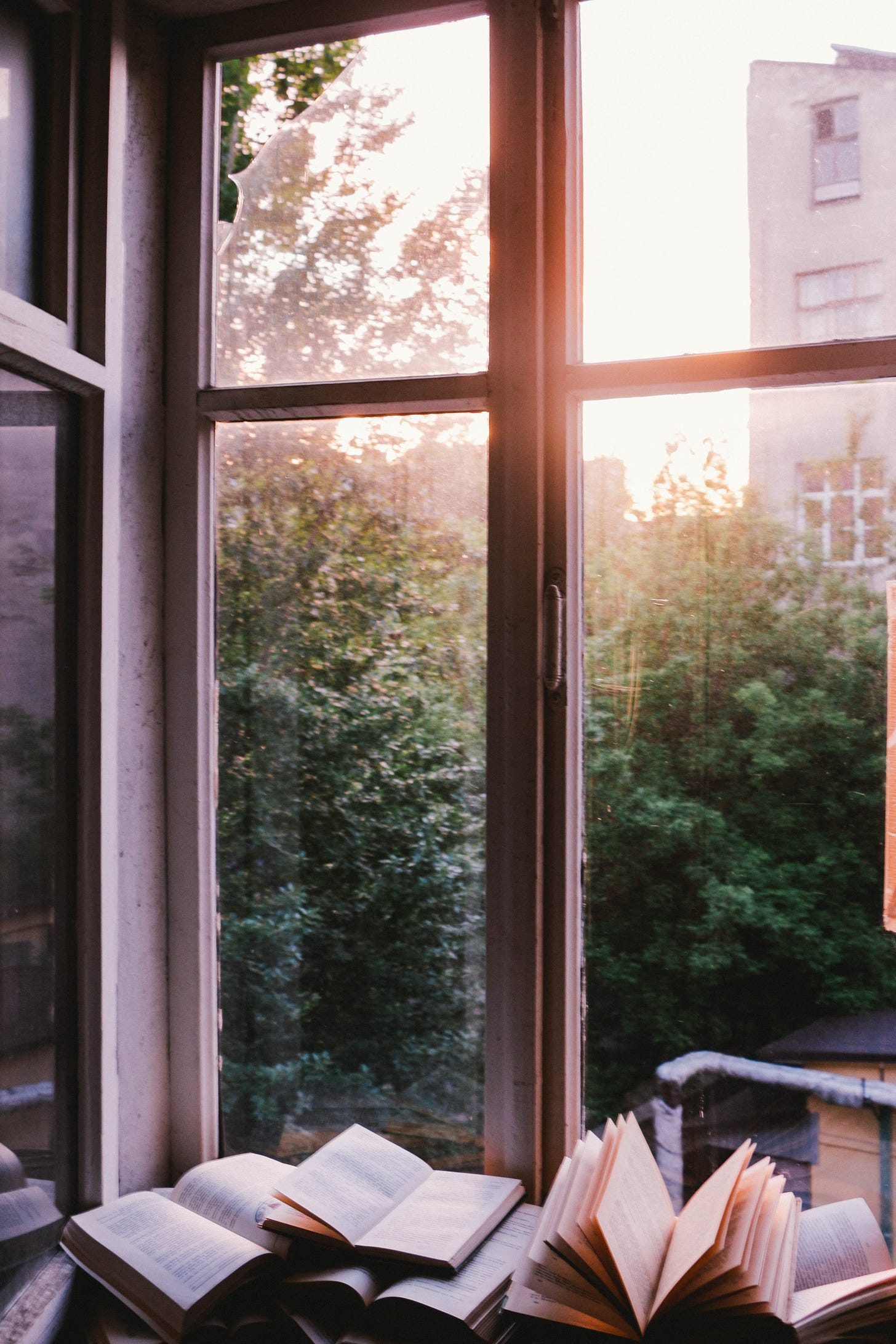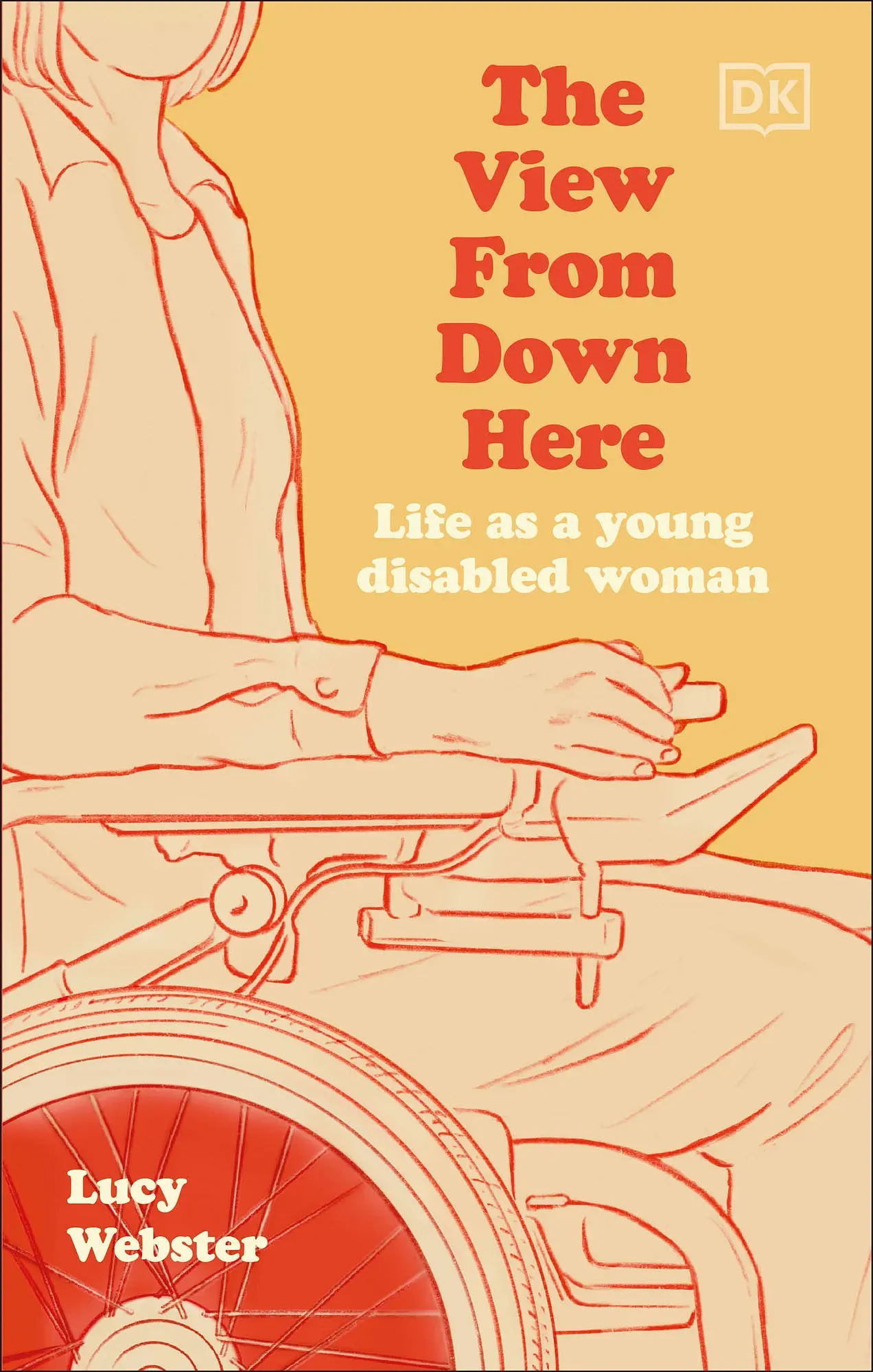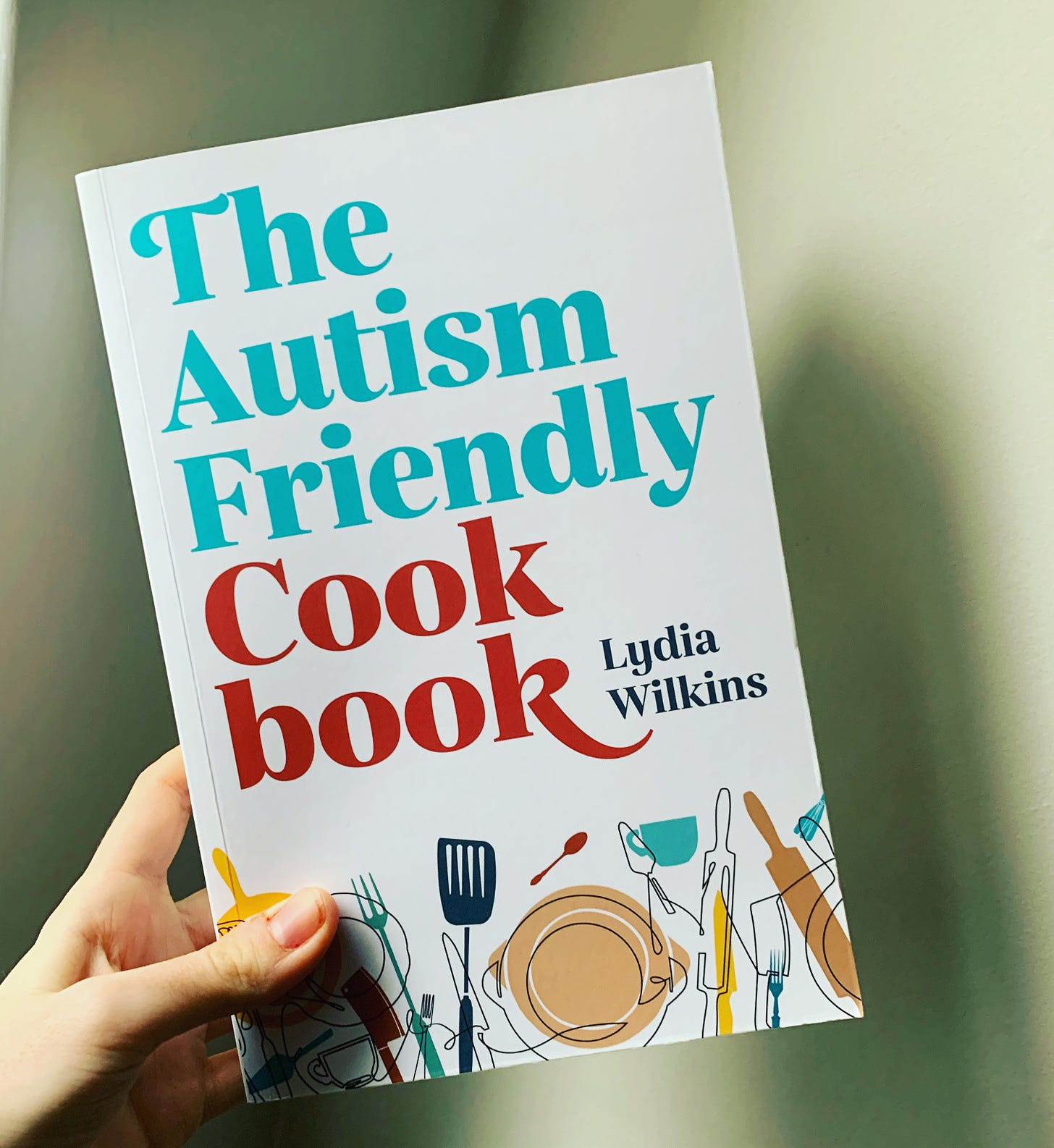Have you ever had the experience of when you pick up a book, you start reading, only to react with the slightly disconcerting revelation of ‘I thought I was the only one’? Or that there is a type of borrowed likeness to be found in the pages of someone else’s life?
A little while ago I interviewed journalist Lucy Webster about her new memoir, The View From Down Here; you can read that here. The book is out today - and I’m here, in your inbox, to tell you all the reasons why you should read it.

If you like what you see, please consider sharing this post with your social media network by clicking the button below.
A proof copy landed in my inbox while I was between appointments, and not necessarily in the best of places; I have come to wonder if there is a future for me in this profession, that I can also balance with a body misbehaving at the best of times. This was a tonic to read, enough that by the end I was trying my hardest not to cry; it felt like someone was listening, who got it, and who had spelt out what to do and why.
Go forth, subscriber - and read this book. We need it.
One of my goals for this year has been to read at least 40 books - with an emphasis on disability with a wide experience in that. So not just the experiences of ‘palatable’ individuals or the memoirs of parents or care related individuals; my profession already tells far too. any of those stories, missing the nuance, the grit, the humanity in all of its messy glory. The View From Down Here has been on my list of books to read ever since the release date was announced.
(As a side note: I do in fact know Lucy Webster, the author. We finally got to meet at Fashion Week in February at long last, having exchanged pleasantries online previously. We also sat together at Naidex to watch a panel my boss was the lead on, gossiping and exchanging ‘war stories’ on what publishing entails. It was a lot of fun - one of my favourite memories of this year.)
The more we become comfortable with disability as a society, the more we expand the vocabulary in the right way. It is so pointless trying to hide away; it denies an experience, arguably only leading to suffering and painful experiences. If knowledge is power - which arguably any feminist should be in favour of - then we need to have something of a radical re-think on how we approach the intersection of each movement. (Note: this is also why my newsletter has the name The Disabled Feminist!) So much of my own experiences have been from being at the centre in the missing gap - how ableism overlaps with sexism, and how disabled individuals become invalidated when this is our general set up. Until I had started to read this book, this had been something I struggled to articulate. Therein is a shared camaraderie - the painful parts of social exclusion for not being palatable/acceptable enough, the fetishisation of dating experiences, the widening gap of experience between you and people of the same age but who are non disabled. Webster draws out a universal experience in this vein exceptionally well - with the stats to back up why this is problematic, too.
I really like that there’s an examination of a relationship with the body. Under the guise of feminism we are told so often that we must adore and love and unconditionally accept the body, because that is the feminist thing to do. Webster writes at length on how the insistence of things not being bad makes it hard to admit if there is a struggle with or within the body going on. That hit home hard, I really felt that. Though we do not have the same disability, the universal overreaching idea was one I had wanted to see for a long time. There needs to be a nuance to conversations around body image; we are allowed ‘off’ days, and we are allowed to say that there are, frankly, sometimes shit bits that are, well, a pain in the arse to deal with. It’s not for us to internalise and to try obtain a non-disabled standard in the relationship we have with ourselves, though. Where the balance and where the fine line is has yet to be defined.
Some of the chapters deal with the concept of desexualisation, a concept of which I had never heard of. Webster writes on how, although feminism has done the job well of saving women from hyper-sexualised positions that deny agency, what about those who sit, voluntarily or not so voluntarily, on the other side of the fence? And she asserts the position that I adore so very much: disabled women are funny, sexy, gorgeous. Why is it that we so often forget that? Every time someone expresses the words ‘I’m sorry’ about my cane, I want to express annoyance; this is where I derive my power, my sense of self that is accepting of a body that is muddling through every day and is sometimes in pain. It is on my own terms, beyond the boundary of what has been set up for me already.
We have got to do better when we look at this.
While there are some limits - in that some more filling out of events could have taken place, with more detail, as well as to perhaps not speak for every disabled woman - I want everyone to read this.
Feminism has yet to truly see disabled women as women who are here, and belong. (*Cough* gender critical feminists who deny disabled women are women *cough*) Isn’t it time we joined forces, beyond the arbitrary grounds we too often set?
Buy this book. Give it to your parents, your non disabled friends, your lovers and collaborators. It’s required reading for any feminist.
Out now: The View From Down Here: Life as a disabled young woman by Lucy Webster (DK, £16.99)
My debut book is out now - and this is what some lovely people have thought about it.
“The Autism Friendly Cookbook is a striking manifesto on the importance of accessibility in cooking. With adaptations front and centre, this book from Lydia Wilkins is sure to become a kitchen staple.”
- Natasha Lipman, journalist and host of The Rest Room podcast:
“Cooking is one of the foundations of independent living. This charming, inviting book is designed to make this basic life-skill accessible to everyone. It's not just a collection of tantalizing recipes, it's a celebration of autistic community.”
- Steve Silberman, author of NeuroTribes: The Legacy of Autism and the Future of Neurodiversity:
“A delightful guide full of important information for neurodivergent foodies - we've needed this for years!”
- Chloe Johnson, editor at Disability Review Magazine





